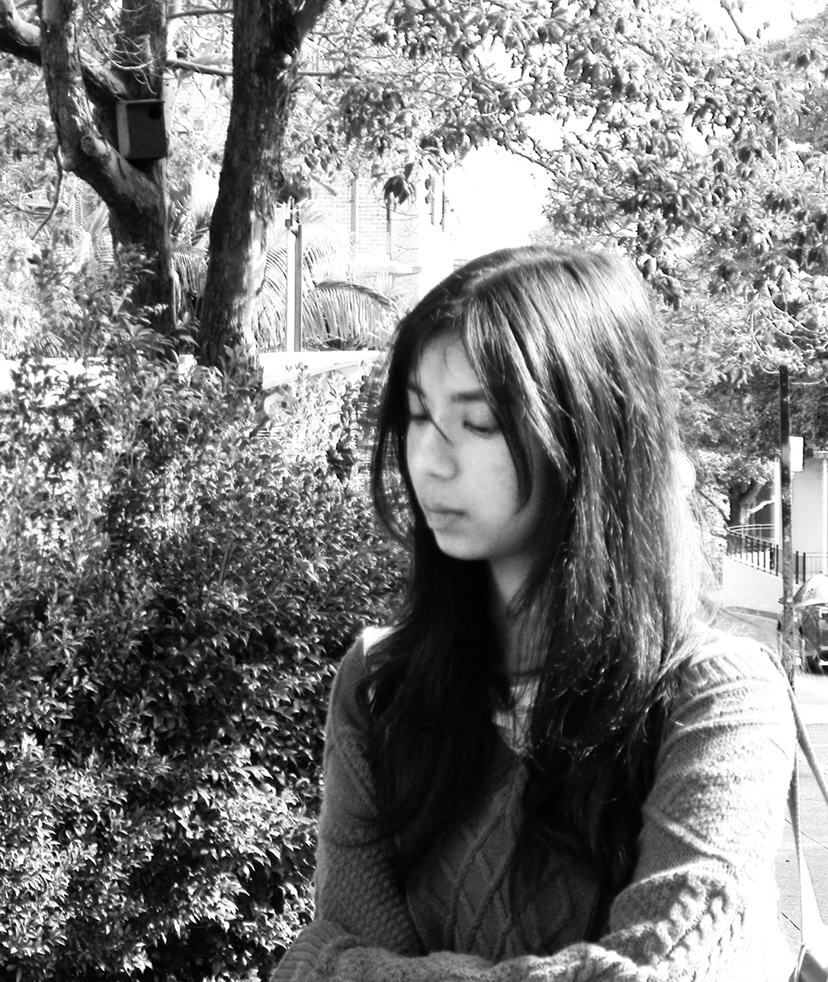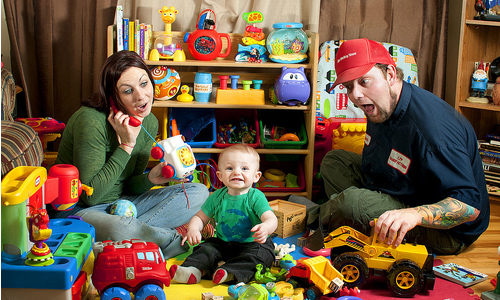
Meet the Winners of the 2023 Rachel Funari Prize for Fiction: 3rd Place, “Precious Horrors” by Sonal Kamble
meet the winners of the 2023 rachel funari prize for fiction: 3rd place, “precious horrors” by sonal kamble
Sonal Kamble’s story, Precious Horrors, placed third in the 2023 Rachel Funari Prize for Fiction
Sonal Kamble’s story Precious Horrors placed third in the 2023 Rachel Funari Prize for Fiction. Here’s a Q&A with Sonal, plus her award-winning story!
*
Congratulations on placing third in this year’s RFP for Fiction, Sonal! Tell us a bit about yourself.
Hi! I am Sonal! I’m a student, I grew up in Sydney, and I’m still growing up. I can describe myself in terms of things I like and things I’m scared of: cats, eggs, BTS.
What do you think makes a great short story?
I like things that are written simply. But that doesn’t mean they’re not complex or intelligent. When I read, I like to spend more time in the narrative than struggling through the words. I also like things that are sweet and sad.
Precious Horrors is a story about a girl who has a strange child erupt from her arm. The judges commented that it is ‘a terrifying and moving account of Mulgi’s experience’ with a ‘wonderful use of language and imagery that leaves the reader deeply unsettled.’ What inspired you to write this particular story?
I’ve never been a mother before (sorry), but I have been someone’s child. Childhood is a bit of a preoccupation of mine. People usually think babies are very cute but if they weren’t cute, they might be a bit scary. And how scary is that? Babies rely on others for protection, need affection to survive. Or else they wither up and turn into terrible things, like writers.
I don’t know, I think something difficult in life is negotiating your own feelings with those of others. Especially if you have to protect someone else along with yourself. I guess that’s what I was inspired by.
When it comes to your writing process, are you a ‘plotter’ or a ‘pantser’?
I am a pantser. I don’t like thinking too much. Plotting makes me nervous.
How do you approach the editing process: do you edit as you go, or do you allow yourself to write the ‘bad first draft’ first, and edit later?
I can’t help editing as I go. I have loser-issues and feel too sad if a first draft is bad. Usually, if whatever’s in the document looks nice, I feel very excited to open it just so I can stare at it and feel a bit better about myself. But if a first draft is bad, it will be hard for me to even look at it. I don’t condone this behaviour.
How do you know when one of your stories is ready to be sent out into the world?
When I feel very tired of it, like it’s taken all my clothes and money and is also plotting my murder. Like that Lady Gaga song. At that point I either put it away forever or just submit it. As long as I’m not really embarrassed by it, I just let it out.
The Rachel Funari Prize for Fiction calls for stories by women and non-binary writers. What’s your view on diverse representation in publishing?
Oh, I’m not too familiar with the publishing landscape. I guess I’m happy with how far it’s come but it’s definitely not enough. From what I have seen, it seems that the way diverse works are treated is indicative of larger assumptions placed on diverse individuals. Publishing doesn’t exist in a vacuum; you can definitely see it in what kind of styles are privileged and what narratives are considered ‘intellectual.’ I also think sometimes people want diverse authors to articulate their experiences in a specific way. Authentic yet novel, vulnerable but consumable. I don’t think representation is that simple.
Why did you enter this year’s Rachel Funari Prize for Fiction?
I think it was something one of the judges, Katherine Larsen said – that revolt is anything that challenges the dominant narrative of the word ‘should’. That was so fascinating to me. I like writing about people who don’t do things properly. There is always something interesting there.
Let’s talk books. What’s the last book you read? What are you currently reading? And what’s on your TBR pile?
The last book I read was Heaven by Mieko Kawakami. It was very good! My sister bought me the Twilight novels for my birthday so I’m currently re-reading those. The books on my TBR pile are probably the ones I started reading last year and forgot to finish – All The Light We Cannot See by Anthony Doerr, Wuthering Heights by Emily Brontë. My sister’s also been trying to get me to read Love, Theoretically by Ali Hazelwood. We’ll see.
What is the most unputdownable book you’ve ever read? What did you love about it?
Almond by Sohn Won-Pyung! I didn’t put it down because I was reading it while hiding from people haha. But it’s definitely one of my favourite books of all time. It gave me a whole different perspective on my own childhood. The author wrote the characters with so much care. That’s what I loved about it. The narration was detached given the main character’s situation but there was always an undercurrent of empathy from the author. I think that’s important.
If you could invite three literary figures to dinner, who would they be, and why?
I’d like to invite fanfic authors. I find them very fascinating and want to know more about them. They don’t really get rewarded and don’t have their names attached to their work either.
There was one author who wrote the saddest and craziest fanfiction I’ve ever read, and all I could find out about them is that they are a Pisces and study literature somewhere. They only wrote one story and disappeared, so I’m very curious about them. It was a really important story to me. I’d invite them to dinner just to give them all my money! I hope they’re doing well.
Where can people follow your work? (publications, social media, etc)
I’m on twitter: @cbbgwrites
*
The man living in the slice between the curtains is cooking. Or maybe boiling. He has a Tupperware mask strapped to his face, the same powdery blue as his gown, and a PVC tube dripping out from his chin that feeds into a boxy monitor.
Plumes of pewter grey cloud around his cheeks. His chest sinks. He sucks in air. Punches out another breath.
His eyes are closed, so Mulgi thinks he must be asleep.
Mulgi should be too, but her mother is not here. The hospital is very loud, and she has to shake herself from sleep every time her eyelids sag shut. It’s difficult closing her eyes when her mother’s not here.
There is a crater in Mulgi’s arm. It’s a fresh, weeping welt the size of a plum. No bone has appeared yet, but the wound has been steadily eating its way through her upper arm since it appeared.
Mulgi did not hurt herself, and nothing hurt her. She woke up on Tuesday morning and it was there. She has stressed this to everyone, and it makes her feel hopeless when people think she is lying. She doesn’t know how to convince them that she isn’t. She just isn’t.
The doctor is a man that smells like milk. He is too friendly, trying to tease a comfort out of Mulgi that doesn’t exist in this noisy place.
“Just a prick!” He says, before pinching the flab of her upper arm. A long, fine needle drinks from the welt, then Mulgi is taped into swathes of gauze and rolled into another room.
The mood turns precarious fast. Mulgi misses the doctor’s milky smile and bunched up cheeks. Mulgi’s mother turns her back to her. Nurses flood in, bringing severe expressions and streams of equipment. They peer at a monitor Mulgi can only see the back of. When they turn the screen towards her, its filled with static. Two pools of black float in the middle. Mulgi looks at the doctor. In the corridor where their eyes meet, Mulgi feels sentenced before the words are even spoken.
“They’re eyes,” he says.
*
He is a hideous boy. The first time Mulgi sees him, she starts retching over the bedside, working her emptied stomach to get something out. But he is already out. And he looks so happy to be there.
He has two arms and two legs – healthy sized – but a torso that looks like a Frankfurt sausage. The boy had crawled out of Mulgi’s arm eyeballs first, limbs folded up the same way spiders were after a Mortien bath.
“It really is a miracle,” her mother says. She holds him in her palm, fingers pinched to keep his limbs from spilling over. “What a beautiful boy.”
Its ugly. It makes her scared.
She holds him in the corner of her eye. He has no head – just two naked eyes springing out from the skinless divot of his neck. So much of him is raw flesh, the sight itself feels inherently violent.
“The most precious boy,” a nurse says. “Mulgi is very lucky to have an adorable boy like you.”
The boy gurgles. His eyes roll slowly across the room. They catch every slant of the fluorescents.
“Mulgi, look! He’s smiling at you!”
*
In the weeks following, crowds collect around their house. From her window, Mulgi sees floods of peppered heads filing down the patio. The neighbourhood aunties, like a procession, wind umber cardigans around their chests and lean over the pram exhibited on the lawn. They name him Dustin. He sits out there, soundless, the entire day. He doesn’t even wail when night draws over. Maybe he can’t feel frost.
Mulgi tapes slabs of corrugated tin to her window. She doesn’t want to watch the back of the pram. If he starts weeping in the middle of the night, Mulgi doesn’t hear.
*
The next day, Mulgi finds him making biscuits on her bed.
He is still hideous to her. Even when gurgling happily in a crater of linen, there is nothing Mulgi can find endearing about him.
Her mother ghosts in from the kitchen with a bottle, and the two of them cuddle on Mulgi’s bed.
“Can’t you go somewhere else?” Mulgi bites out. Dustin turns towards her voice, like a sunflower opening its mouth to the sun.
“He likes it here,” her mother says. Mulgi watches the little poltergeist suckle on his bottle. He’s smiling at her the entire time, milk dribbling down his chin. Mulgi has to turn away.
“Look,” her mother tuts. “You made him sad.”
Everyone’s losing patience with Mulgi these days. Dustin has eclipsed her, and they hate that she isn’t delighted by him. He is skinless and he is slimy and his eyeballs are always wet and tender like someone’s ladled oil over them.
Dustin is still upset, so her mother lathers her fingers over his tummy. Mulgi remembers squeezing those same fingers in the thick of the Sunday markets, fighting currents of prams and trolleys and floating clouds of cumin. Dustin opens his mouth – toothless, full of flesh – and a twin smile blooms on her mother’s face. Mulgi leaves the room.
*
Once the crowd dwindles, Mulgi spends her entire day at home. Her mother and sister tend to Dustin throughout the day, but Mulgi refuses to see him.
“He misses you; you know. He smiles every time he hears your name.”
Mulgi has shut herself under her duvet. Her sister has been patient with her, bringing food to her bedside and trying to gentle her out of bed. But Mulgi hears an edge bleed into her voice.
“He’s your son.”
Its late afternoon. Bullets of sunlight pelt off her window and Mulgi thinks she can hear him gurgling in the yard. The damp echo of her mother’s delighted laugh. All while Mulgi suffers in her bed.
Aimou’s fingers twist in the duvet. “He is your son, and he loves you.”
All Mulgi can think about is Dustin, swaddled on the lawn, soaking up her mother’s smile in his ghoulish, limpid sclera. She tears the blanket off her head and a laugh punches out of her. “He’d love anyone he thinks is his mother. He’s too young for that to mean anything.”
Aimou flinches off the mattress likes she’s revolted. “What? Like your love is more meaningful than his?”
The silence that follows is sharp. Mulgi watches Aimou’s eyes mellow into a disbelief that feels worse than her fury.
“Whatever,” she says. “You might think you’re all grown up now, but it’s just as real for him.”
*
Mulgi starts taking Dustin out for mini excursions. It was difficult at first. It had felt like such a punishment, Mulgi had cried all the way through their first walk down the underpass. But the weather had grown furious over the next few months, and all the streets had cleared up. There were no more curious eyes following their walks. Just Mulgi and Dustin.
They’ve travelled all across the southwest of the suburb so far, but are yet to cross the rail yard into the north side. There is a park there that Mulgi wants to take Dustin. It’s one she used to visit with her friends.
Dustin babbles happily when Mulgi straps him into the baby swing. There’s not a soul in the park, just leaves floating across the equipment. Mulgi instructs Dustin to hold the chains tightly, but she still has to gentle him on the swing. There isn’t enough of him to fill out the bucket seat. A push hard enough to bristle the hair on his head would send him flying onto the rubber tiles. He isn’t as big as the other kids; he will never be. The outside will only be open to them when the weather is biting, or after dark.
Once Dustin has finished counting each pool of sunlight on the grass, and each pine leaf twisting through the currents, they head through an alleyway to get to the station. Exhaust spits from the back end of restaurants and into the tangles of powerlines above. Mulgi has to stop Dustin from trying to suck the smoke into his mouth. They lost track of time, but it’s still light outside. Mulgi winds the pram carefully through the narrow path.
“I’m so hungry I could eat someone.”
At the mouth of the alleyway, a flood of girls in navy uniforms pass by.
Mulgi recognises that voice. She recognises it. The sound spills into her brain faster than her gasp can be sucked down her throat.
Deborah Lobson—plaid skirt rolled up her waist, tissue-thin tights, and the gold insignia of their school stitched above her breast. Mulgi’s best friend.
Mulgi ducks behind a trashcan and bites on her fist.
The chatter continues, and more voices sharpen into recognition. Leah from Biology. Sandra the class monitor. All people whose calls Mulgi has been dodging. Mulgi doesn’t know how to explain herself. Explain why she isn’t at school. Why she will never be coming back. Her grief is packed into her house, stuffed inside the walls to flower between the parapets. Mulgi doesn’t know how to explain that.
“Eat me, Dooby, please!”
The group dissolves into laughter, binders clutched to chests and bracelets creating twinkles of sound amongst the traffic. Mulgi sinks deeper into her corner. She doesn’t want them to see her. Or her baby.
Her baby.
Mulgi notices too late. She had left the pram in the mouth of the alleyway – Dustin’s face open to the public. She hears the exact moment they see him. The smatter of footfalls goes entirely quiet.
“What the hell is that?”
Dooby isn’t mean. Mulgi knows Dooby. They can be silly and mindless, like all teenage girls, but they love each other, and treat each other well at the end of the day. If Dooby knew Dustin was hers, she would lather him in affection.
Probably.
“I’m feeling sick. I’m—that’s so gross. Why is it—wet.”
“What’s coming out of its mouth?!”
“Bet Dooby’s not hungry anymore.”
This pulls strings of laughter out of them. Mulgi hears Dustin mewl quietly, left out there all by himself, on display.
“It’s so ugly,” Leah says. Another uncomfortable voice pushes through the group. “Can we go? It’s scaring me.”
Dustin grips the blanket so tightly, the fabric pills into his palms. Even after they leave, Mulgi doesn’t rush to his side. She hides, shaking behind the trashcan. Only when she’s sure they’ve vanished does she slowly walk over.
“I’m sorry,” she says. Dustin’s eyes are frozen wide open, still looking off into the street behind her. Mulgi wants to hold him, but her hands are shaking too hard to unbuckle the belt properly. “It’s okay, I’m here now.”
He’s shaking, full of fine tremors. “I’m here now, it’s okay.” She repeats. His eyes are still peeled wide open. He is looking somewhere else.
“I’m—” Mulgi doesn’t know what to do. She starts crying helplessly, like a child, and cries even harder when she has to wipe Dustin’s tears between her own. Together, they make their way home by the time the sun is pulled entirely from the sky.
“I’m sorry,” Mulgi says. She dries the tears off her fingers and unbuckles him from the pram. It must be her hundredth apology. The number matters to no one.
She changes his clothes and runs a washing cycle that night. When she tries to free the blanket from his hands, he won’t let go.
“Dustin? Can you give me the blanket please?”
He keeps looking off somewhere behind her, eyes glossy. Mulgi tries to peel each finger off the fabric, which is damp from the inside of his palm, but he won’t let go.
“Dustin?”
He keeps looking off into the distance. He doesn’t let go.
*
Sonal Kamble is a student at the University of Sydney. She is currently editing PULP Magazine.

The sponsors of the 2023 Rachel Funari Prize for Fiction


